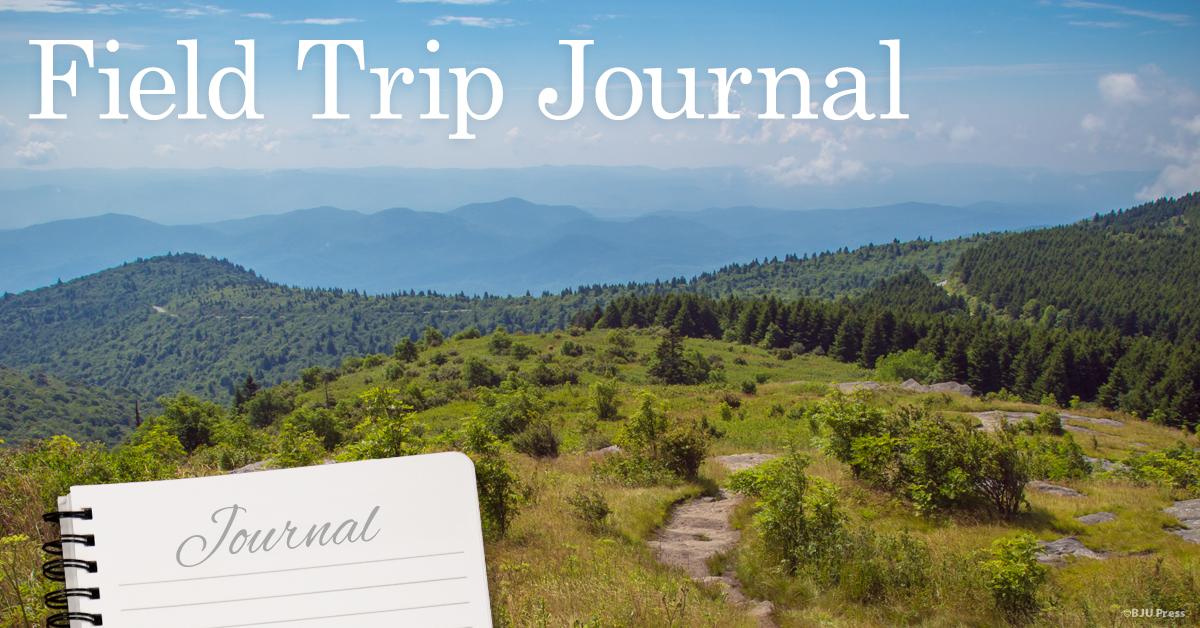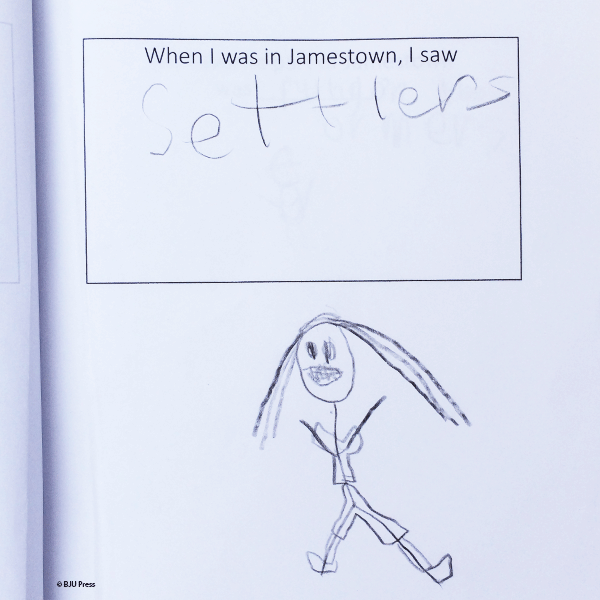
This summer our family had the opportunity to visit Jamestown Settlement. It isn’t on the original site of the first permanent English settlement in North America, but it is nearby on the James River. It’s a terrific place to teach children about history. All over the living history museum, docents encourage the children to touch everything. There are replica ships, a life-sized fort, even a Powhatan village. The site also has hands-on activities, so my daughters got to help remove fur from a deerskin with oyster shells and try on armor.
My wife and I had visited Jamestown Settlement before, so we knew the children would have fun and get an introduction to colonial life. But we wanted our four-year-old and six-year-old to view this as a learning opportunity and not an amusement park with a historical theme. But on the other hand, we didn’t want to remove the joy of learning that comes from an opportunity like this. So we developed a field trip journal. Using learning strategies that we gleaned from the BJU Press reading curriculum, we planned “pre-reading” and “post-reading” questions to improve our children’s learning comprehension.
Before the Field Trip
Just as we ask pre-reading questions to activate prior learning before reading a story, we asked our children to answer questions about what they knew before we arrived at Jamestown Settlement. Our six-year-old has finished first grade, so she wrote short sentences to answer questions. But both she and our four-year-old used crayons to draw pictures to express their thoughts. As they drew pictures of Native American tepees and horses, they were thinking through what they already knew about early American life. Their pictures were wrong since they drew cone-shaped tents. But that was good. They were setting themselves up to have their misconceptions corrected on the field trip.
We also asked them what they were looking forward to seeing the most at Jamestown. This created a sense of excitement and helped them look forward to the new things they would be learning.

After the Field Trip
Leaving the settlement, we sat at a picnic table to eat sandwiches, chips, and grapes. After lunch we pulled out their journals and asked them some more questions. We guided them to think through what they had learned and to draw pictures of the Powhatan huts, so they could see the difference between what they thought they knew before the field trip and what they knew afterwards. We also asked them to draw what they most enjoyed seeing. These questions cemented the learning for our children and helped turn a fun trip into long-term memory. The journals also became souvenirs that were far more valuable than the ceramic mugs at the gift shop.
